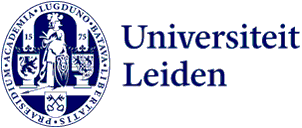
Improved Financial Outlook Faculty of Humanities 2026–2030
In the short term, no reorganisation is foreseen within the Faculty of Humanities, nor are any compulsory redundancies expected. Nonetheless, structural changes remain necessary. This is evident from the faculty’s draft budget for 2026 and the accompanying financial multi-year outlook.
Measures implemented within the faculty, such as the vacancy filter and hiring freeze, are proving effective and contribute to a more positive financial outlook for the coming period. In addition, significant steps are being taken within the programmes to reduce the number of courses, develop shared teaching modules, and strengthen the core curriculum. All institutes and the faculty office have also been assigned targets aimed at achieving a balanced budget by 2027.
Outlooks less negative
The multi-year institute budgets present a more positive picture than previously estimated. For 2026, a slightly positive result is expected in terms of regular operations. The outlook for subsequent years is also less negative than in the 2025 budget. Based on current information, deficits up to and including 2030 can be absorbed within the faculty’s reserves.
Shrinking workforce
In addition to the continuation of the aforementioned measures, two further factors contribute to the improved financial outlook. Firstly, personnel costs are expected to decrease in the coming years due to retirements and the expiration of temporary contracts, on the assumption that these positions will not be replaced. As a result, the faculty’s workforce is projected to shrink by approximately 150 FTEs by 2030.
Secondly, ambitions regarding costly educational innovations are being revised. A portion of the reserved funds for these initiatives will be reallocated following careful consideration, allowing temporary deficits to be covered and time to be gained for more structural solutions.
No reorganisation involving compulsory redundancies
Text
The faculty is currently in the investigation phase, as defined by the Reorganisation Code. Before 1 November, the Faculty Board expects to submit a ‘proposed conclusion’ to the Faculty Council for consultation. The assessment focuses on whether organisational changes are required to achieve the necessary budget reductions and, if so, whether this would constitute a reorganisation involving compulsory redundancies. Compared to the outlook prior to the summer, the Faculty Board now expects to conclude the research phase more positively, with a draft conclusion that does not lead to a reorganisation involving compulsory redundancies.
'The current financial outlook strengthens our confidence that this will be achievable. However, this does not mean the work is done — further measures are still required. In the proposed conclusion, we outline what the next steps in the process will look like,' said Dean Henk te Velde.
Substantial adjustments required
While no compulsory redundancies are planned, the organisation will still face major substantial adjustments. From 2027 onwards, a structural deficit is expected, for which the currently available temporary financial resources and reserves offer only a short-term solution, not a sustainable one. Declining student numbers must also be taken into account, and current projections assume natural attrition without replacement. A well-considered strategy is essential to ensure the continued delivery of high-quality education and leading research.
Furthermore, the balance between resources and required capacity is misaligned in certain parts of the organisation. Potential budget cuts from central government also remain a realistic concern. The need to make strategic choices, operate flexibly, and future-proof the organisation remains pressing.
A more agile organisation
An agile organisation is essential to respond effectively to changes within the university, society, and the political landscape. The faculty has already demonstrated considerable flexibility, particularly in adapting its teaching. This effort is appreciated and inspires confidence for the future.
Henk te Velde: 'It is essential that we continue along this path. The challenge lies in managing limited resources efficiently while preserving space for essential innovation. This is the task facing us all - the Faculty Board and all staff.'
Information sessions
To provide clarification and address questions from staff, information sessions will be held from late September onwards at the various institutes and the faculty office.
